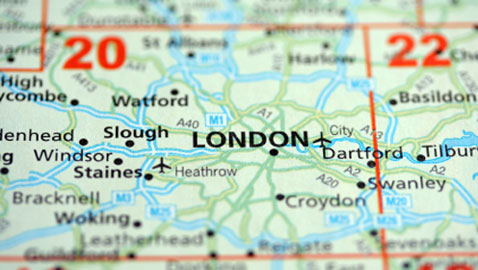Property price growth in prime central London has been outstripped by non-central prime areas in the three months as capital property values carry on increasing, according to Marsh & Parsons’ inaugural London Prime Market Monitor.
The estate agent said that while prime central London has seen the highest long-term property price inflation, with prices rising 10.1% annually, in the last quarter it has been outpaced by growth in less central prime locations as higher prices and a shortage of property pushes buyers out from the centre.
On a quarterly basis, property prices in locations further from the centre such Brook Green, Balham and Barnes have grown an average of 0.4% faster than the average for their traditional prime central counterparts, with non-central prime areas seeing an average quarterly growth of 3.7%.
Prices in prime London as a whole have climbed by 3.5% over the quarter, compared to the slower 3.3% increase in central London specifically.
“Prime central London’s property market is still benefiting from the sheer weight of money pouring into it, but the tangible shortage of property in the most central locations is diverting many wealthy buyers into nearby neighbourhoods,” said Peter Rollings, CEO of Marsh & Parsons.
“With prices reaching new heights in locations like the Royal Borough of Kensington and Chelsea, many buyers coming to London are looking for alternative locations where their budgets will stretch further. While the number of properties on the market in prime central London is historically low, those owners that are cashing in on substantial capital gains to release funds or pay down debt are looking further afield. Areas like Fulham, Barnes, Balham and Brook Green are soaking up the excess demand, and homeowners in these locations are feeling the financial benefits as their homes climb in value.”
Since the economy began to shrink in the last quarter of 2011, average property prices in prime London have increased by 6%, with annual growth standing at 9.6% in Q2 2012.
The major shortage of properties for sale has underpinned price growth. In the pat 12 months, the total number of properties on the market in the prime areas of London has fallen by 19.8%, with a steeper fall in prime central London despite its historically low level of available homes.
“London’s bricks and mortar has shown itself to be extremely robust since the start of the double-dip, and many prices are still climbing,” said Rollings. “Given the uncertain economic environment, nervy investors are holding onto their properties for longer in the hope of further capital gains. This is tightening supply.
“Demand may have dipped slightly in the last quarter after the Jubilee and the dismal ‘summer’ weather, but it is still being bolstered by those looking to protect their wealth from the eurozone crisis, and I don’t foresee this safe-haven effect fading any time soon.
“Nevertheless, given the rapid rises of the past 12 months and the disruption of the Olympics, I expect the third quarter to see prices stabilise, with annual growth steadying as the year progresses.”
